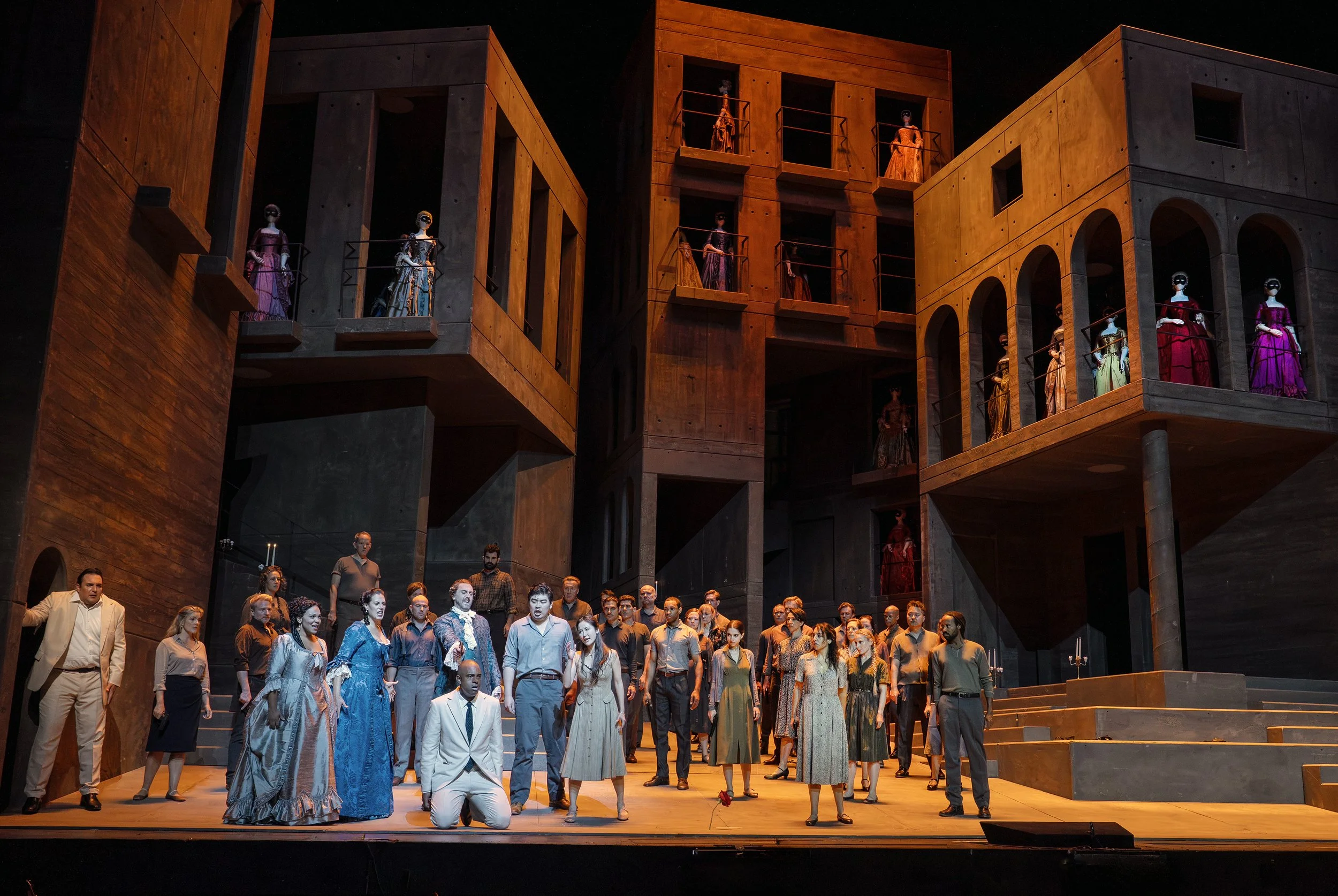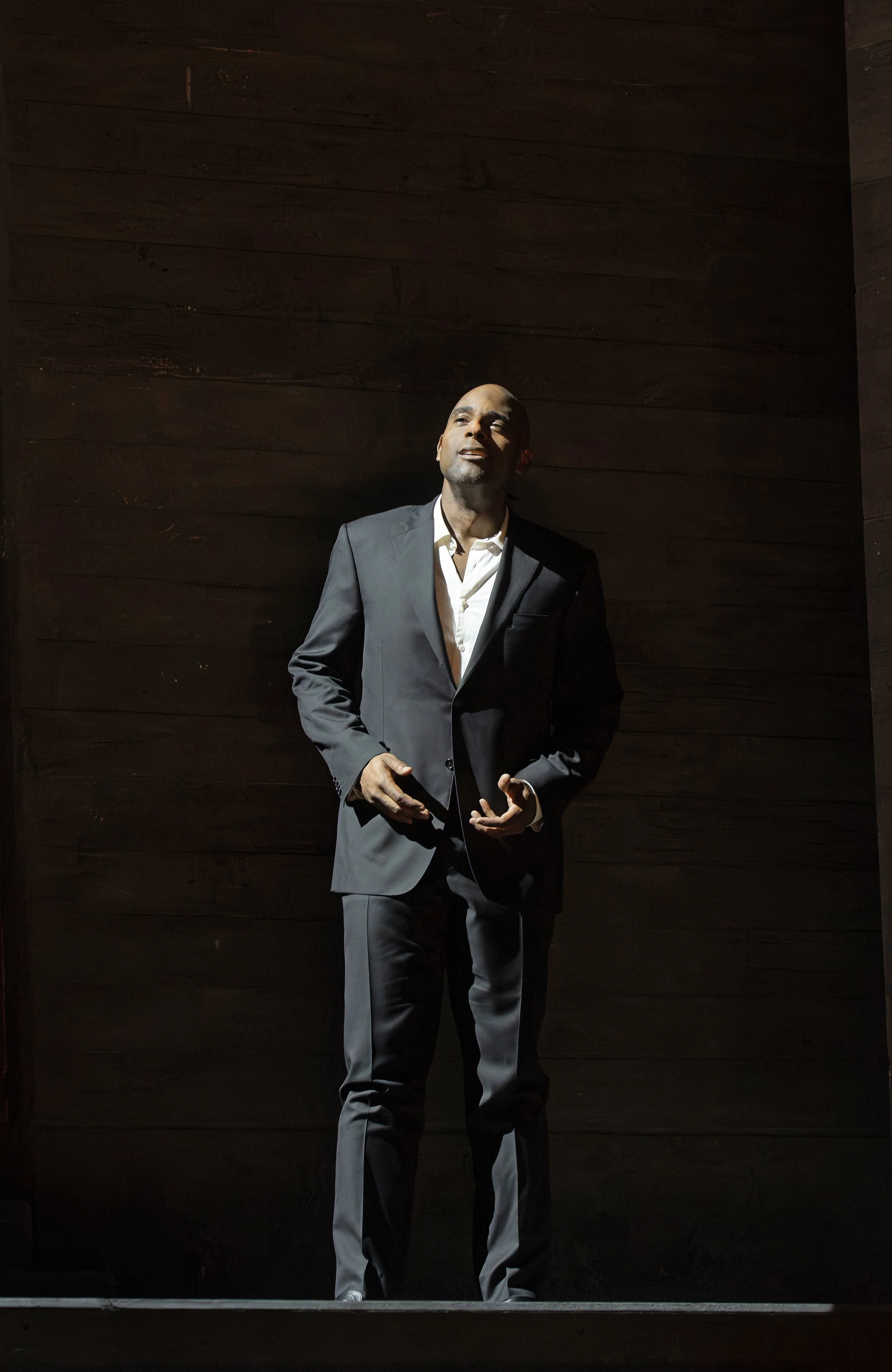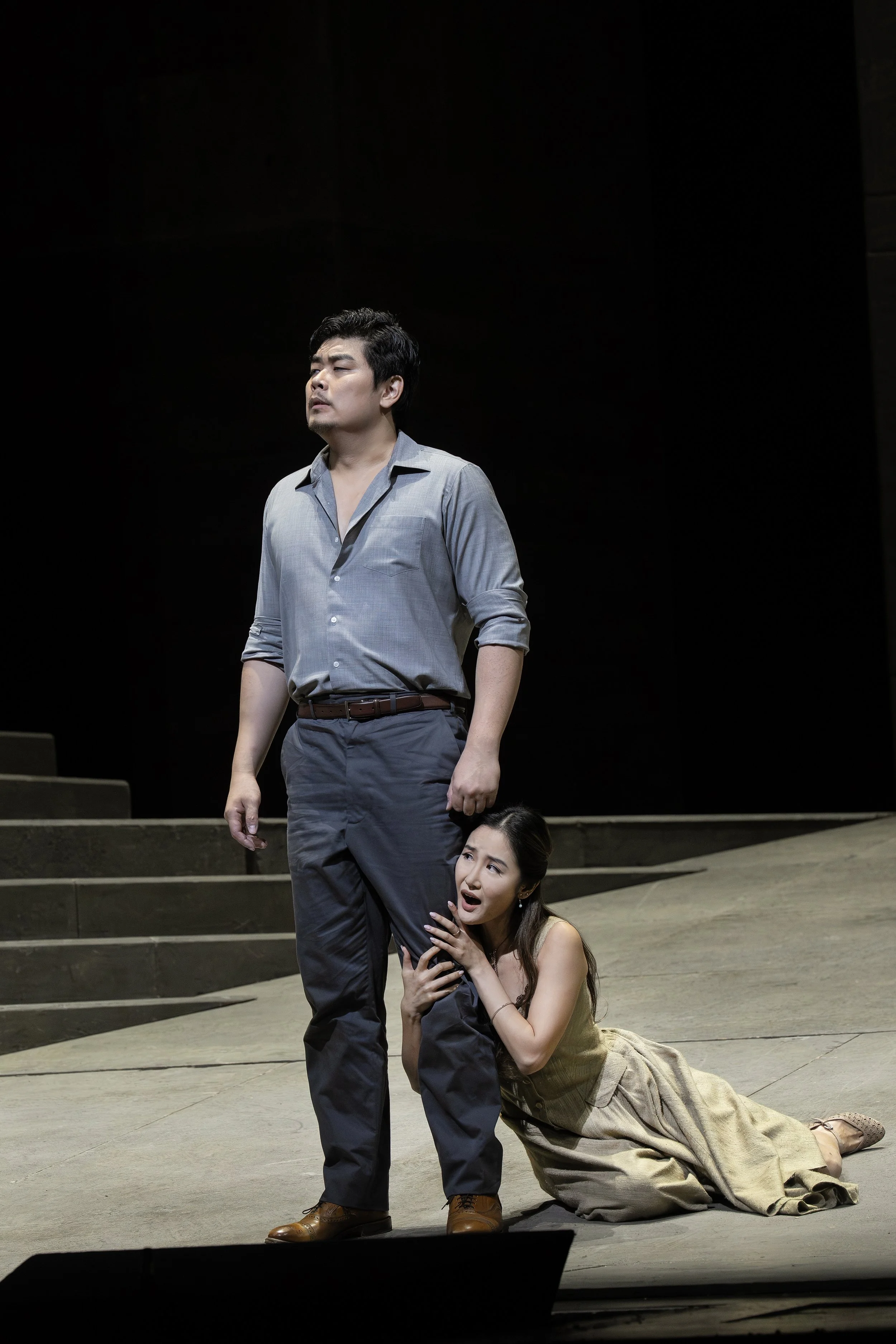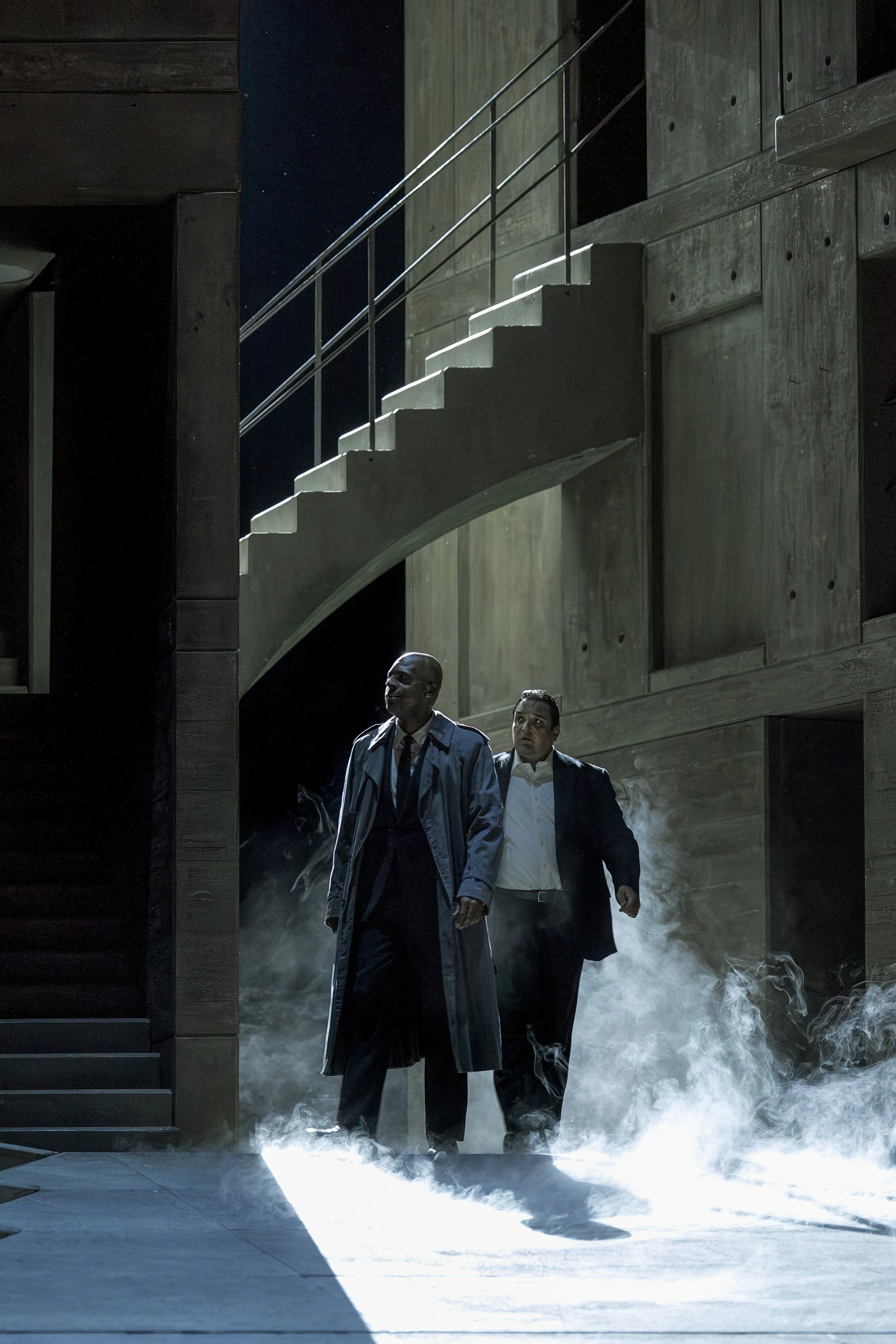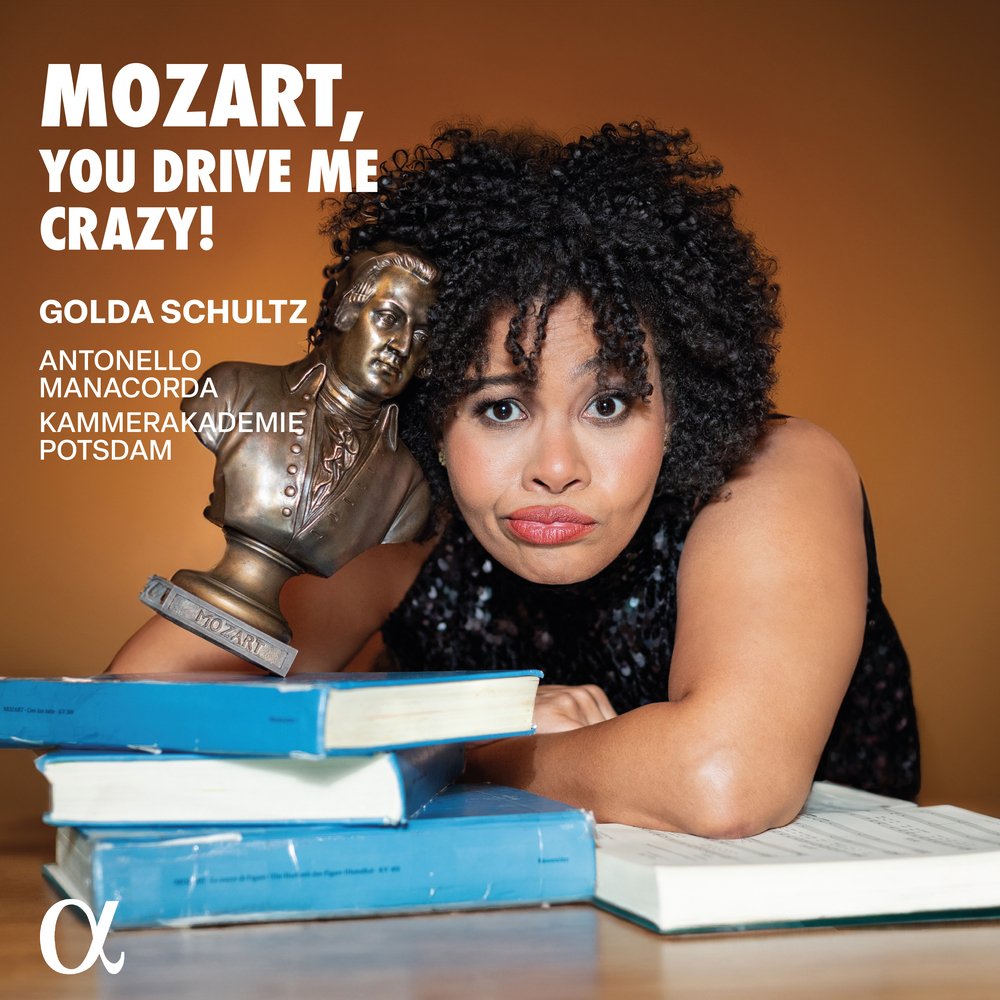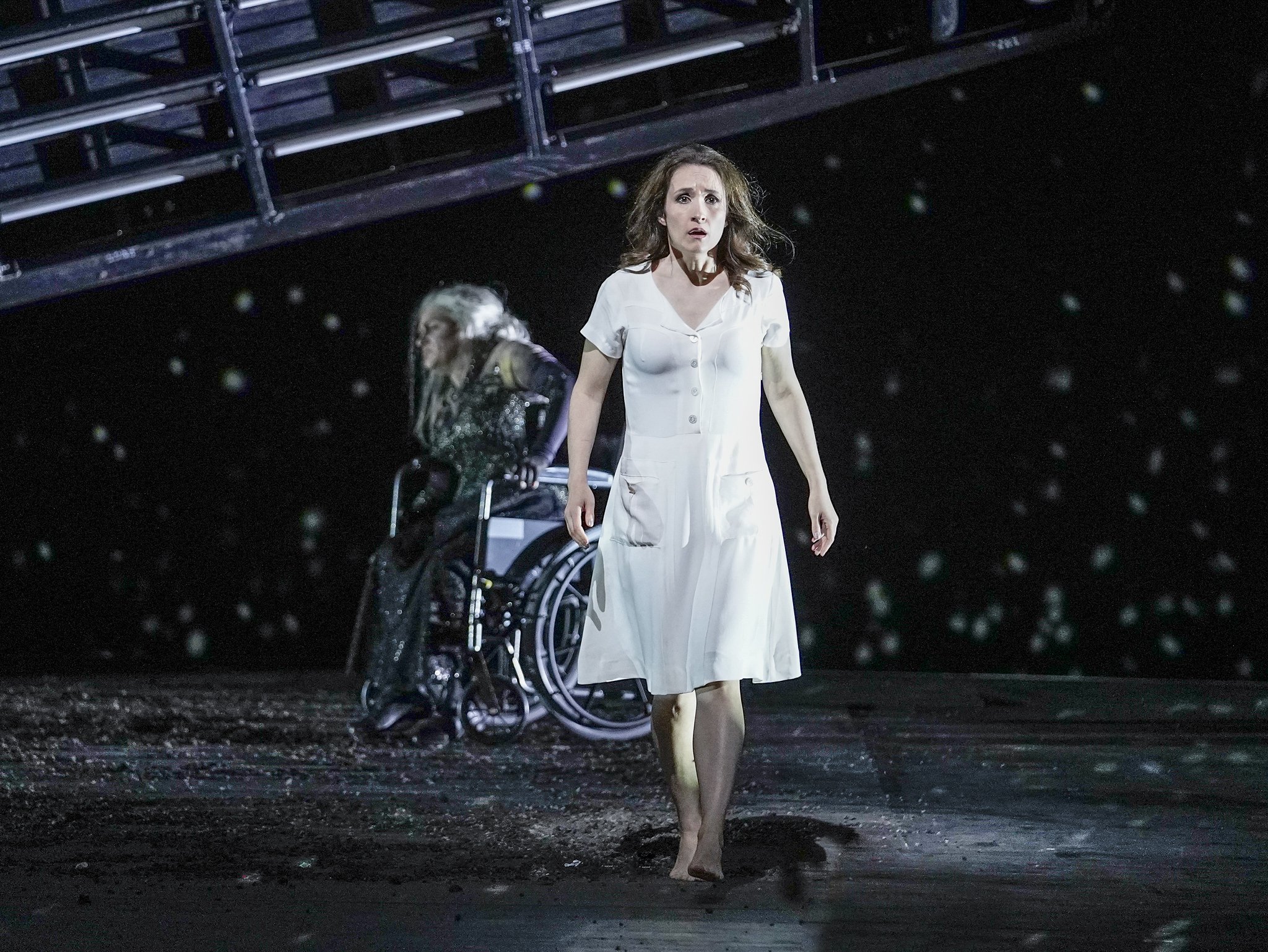Met Opera 2025-26 Review: Don Giovanni
The cast of Don Giovanni in Don Giovanni (Ken Howard/Met Opera)
We hear early on in Mozart’s Don Giovanni that the title cad has seduced 1,800 women, but the people seduced by the opera must number in the tens of millions since its premiere in 1787 — far too many to fit in Leporello’s little black book. Indeed, this second collaboration between Mozart and Lorenzo Da Ponte, at the time the Holy Roman Empire’s court poet in Vienna, is seen by many as the greatest opera of all. It feels almost cruel that the Metropolitan Opera should have kept us from Giovanni for two entire seasons, but as it has now returned with one stellar cast and another waiting in the wings, I will gloss over this injustice.
Ryan Speedo Green in Don Giovanni (Ken Howard/Met Opera)
Ryan Speedo Green is the first African-American to sing Don Giovanni at the Met, so both pride and expectations were running high. It was no surprise to those of us who know him in previous roles that he rose to the occasion magnificently. He nailed “Fin ch’han dal vino,” Giovanni’s fiendishly breakneck aria which clocks in at just under 60 seconds. He oozed presence, as well as charm for most of the evening, but occasionally let his glorious bass-baritone rise to a roar when barking orders at Leporello or Masetto.
Adam Plachetka and Janai Brugger in Don Giovanni (Ken Howard/Met Opera)
Adam Plachetka reveled in his role as Leporello, teasing and intimidating Elvira during his Little Black Book aria. The virile power of his voice only reinforced that even though the world-weary Leporello sees his boss’s dissolute life for what it is, he consistently enables and even finds pleasure in imitating him. Janai Brugger was superb as Donna Elvira, alternating smoothly between bold fury and gentle longing in “Ah, chi mi dice mai,” although she seemed more annoyed than livid when she first ran into Don Giovanni after his betrayal. Her runs in “Ah, fuggi il traditor” were beautifully executed, and her silvery “Mi tradì quell’alma ingrata” was one of the best I’ve heard.
Donna Anna and Ottavio are often thought to have a deeply unstable relationship, but I came away with a different impression altogether. Ivo van Hove’s production presents them as very much in love, with PDA galore, aided by the first-rate chemistry of Ben Bliss and Federica Lombardi. I have often heard about Lombardi’s prowess in Mozart, and was eager to experience it for myself. She did not disappoint; indeed, she was sensational, her crisply rich soprano soaring commandingly through Donna Anna’s ordeal without veering into the histrionic. The only rough spot arose during the exceptionally difficult staccati late in her final aria, “Non mi dir,” but all in all, Lombardi delivered a terrific rendition.
Federica Lombardi, Ben Bliss, and Adam Palka (“dead”) in Don Giovanni (Ken Howard/Met Opera)
Ben Bliss lived up to his last name, with swoon-worthy legato and tenderly sweet singing, befitting a character who is ultimately just too gentle for his or Anna’s good. Ben compares Ottavio to “overcooked pasta,” although I cannot apply the same epithet to his performance. As well-meaning and noble and loving as Ottavio is, he simply does not comprehend Anna’s trauma.
William Guanbo Su and Hera Hyesang Park in Don Giovanni (Ken Howard/Met Opera)
Still, he’s reliably there for her, if not always in the way she wants him to be. As flawed as it is, Anna and Ottavio’s relationship seems a lot more secure than Zerlina and Masetto’s, which as far as I could tell was primarily based on desire. Masetto is a jealous hothead whose violent anger is easily kindled, which might explain why Zerlina was especially vulnerable to Don Giovanni’s advances and the social-climbing opportunity he offered (although, who could resist “Là ci darem la mano”?). Hera Hyesang Park was an impish, gorgeously delicate Zerlina, even if her nightingale-like singing didn’t make the masochistic lyrics of “Batti, batti, o bel Masetto” any easier to swallow. Having never heard William Guanbo Su before, I was delighted to find him an especially strong actor who thoroughly integrated his vigorous voice into his characterization. Adam Palka was terrifying in his Met debut as the Commendatore, who returns to haunt Giovanni, and the capital Met Orchestra struck the right balance of airy springiness and gravity under the baton of Yannick Nézet-Séguin.
As I understand it, the stark, cold minimalism of Ivo van Hove’s efficient production is meant to reflect the Don’s brutality and the devastation he leaves wherever he goes. This is certainly sound, but Don Giovanni is one of the most energetic and vivid operas in the repertoire, two qualities which are sadly wanting from this production. Librettist Lorenzo Da Ponte, a decidedly non-celibate priest and friend of Casanova, had plentiful experience of carefree libertinage to draw on from his life, in which intrigues played out behind masks and in gondolas and at the opera. Don Giovanni operates by exploiting the decadent party atmosphere that reigns in Mozart’s Seville. Van Hove’s production has its good points: the exquisite music and singers are allowed to take center stage, since the staging gives us nothing to look at except for the performers, and the turntable, so often abused these days, is mercifully left alone.
Ryan Speedo Green and Adam Plachetka in Don Giovanni (Ken Howard/Met Opera)
Still, Don Giovanni and Leporello swapping costumes and passing for each other could hardly have been less convincing. Speedo and Plachetka do not bear the least resemblance to each other even in the backs of their heads or their silhouettes, but they look their righteously angry dupes (the two couples and Elvira, hereafter known as the Justice League) full in the face with light pouring down on them multiple times, without even a hat. As a result, the Justice League’s shock when Leporello turns to “reveal his face” comes across as silly.
The beautiful circa-1760s garments that Anna, Ottavio, and Elvira don to disguise themselves at Giovanni’s masquerade ball felt like an attempt to please the purists in the audience (hello) or to introduce something pretty. But why stick cardboard cutouts of similarly outfitted guests on the balconies rather than give the Met Opera Actors an extra chance to shine? However, everybody looking the other way when Don Giovanni forces Zerlina off to an isolated area was sickeningly accurate to real life.
In the end, evil is suitably punished as the Don is dragged down to burn in eternal hellfire — until, of course, he’s resurrected for the next performance. Elvira declares she’ll enter a convent, but given her cheerful air and camaraderie with Leporello, I doubted it. This cast continues for two more shows, with the change of Federica Lombardi for Kathleen O’Mara, until a fresh cast starring Kyle Ketelsen, Anita Hartig, and Soloman Howard enters on November 6. Don’t wait another two years for your chance to fall for Don Giovanni — or join the Justice League.

